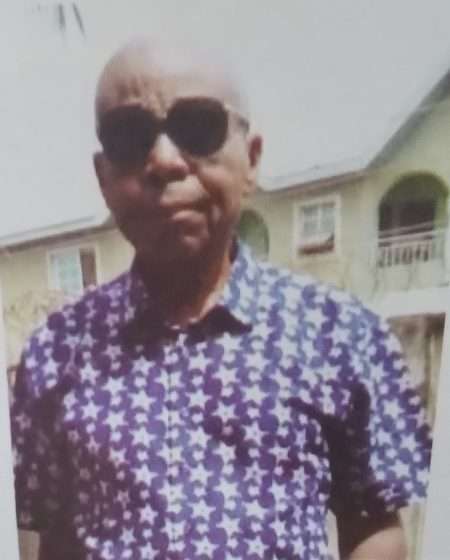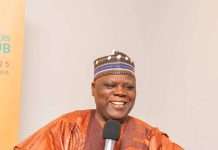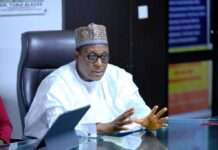
Pharm. Tony Madueke, an octogenarian pharmacist and former national secretary of the Nigerian Association of General Practice Pharmacists (NAGPP), now known as the Association of Community Pharmacists of Nigeria (ACPN), has had a distinguished career in both pharmacy and public service. In this interview with Moses Dike, Madueke, who also served as commissioner for finance in Anambra State and was the only pharmacist from Southern Nigeria in the 1988 Constituent Assembly, shares his wealth of experience and offers valuable advice to the younger generation of pharmacists. Excerpts:
Welcome to our senior citizen’s column. Could you please share a bit about yourself? What were your childhood experiences like, and how did your education and early life events shape who you are today?
My childhood experiences were quite unique. I was only six months old when my father died, so I never knew him. Consequently, I was raised by my mother, who was a very hardworking woman and a disciplinarian. These qualities were instilled in me, and they have been invaluable in my adult life.
I was eager for education and earned my First School Leaving Certificate with distinction. I went on to pass my WAEC examination in Division One, and finally, I obtained my bachelor’s degree in pharmacy in June 1974. It became clear to me that one would fulfil their destiny if they trust in God and strive to do the right thing.
What inspired you to pursue a career in Pharmacy? Were there any role models or specific influences that guided you in making the decision?
My decision to study Pharmacy was driven by my desire to help solve people’s health problems. I believed that I could reach more people with medical issues than a doctor, especially as Nigeria is still a developing country. I was not influenced by any particular role model in the profession.
Can you tell us about your experience in pharmacy practice generally, and are there areas where you would like to see improvements in Nigerian pharmacy practice?
I have had varied experiences in the profession. I started as an intern at the University of Nigeria Teaching Hospital, Enugu. I worked as a medical representative, then as a pharmaceutical sales manager, and eventually set up my own company, which became a strong player in the profession, particularly in the importation of drugs and chemicals. I was also heavily involved in community practice. From 1984 to 1985, I served as national secretary of NAGPP (National Association of General Practice Pharmacists).
During my practice, I observed that pharmacists were not adequately protected in the profession. It seemed that the government was giving more support to patent medicine dealers. Unfortunately, the then Pharmacists Council of Nigeria did not appear to offer enough protection to pharmacists. The profession was being overtaken by patent medicine dealers and other charlatans.
Drugs are still being sold in open markets, which is concerning. I sincerely hope the PCN will be able to stop this and prevent pharmacists from being pushed into the labour market.
Are there other remarkable experiences or services outside pharmacy practice that you would like to share with us?
Outside the practice of the profession, I ventured into politics. I was elected to the Constituent Assembly in 1988, representing Onitsha Federal Constituency. I had the privilege of being the assemblyman with the highest number of private member motions incorporated into the constitution. It is worth mentioning that I was the only pharmacist in the Assembly from the whole of Southern Nigeria.
After the Assembly, I was elected state chairman of the Liberal Convention political party of old Anambra State (present-day Anambra, Enugu, and Ebonyi States). I was later appointed commissioner for finance in Anambra State, in 1992. To the glory of God, I served my tenure meritoriously.
Tell us about your family. Did any of your children follow in your footsteps to study Pharmacy or other health-related professions?
None of my children pursued Pharmacy, but they are successful in their various undertakings. I am grateful to God for the successes I have achieved in my life, and I am a happy man. To be an octogenarian is a gift from God, and I will always praise His name.
Given your wealth of experience, what advice would you like to give to the younger generation of pharmacists on how to make the best use of their calling as healthcare professionals to impact humanity positively?
My advice to young pharmacists is to have a broad outlook on life. They should not limit themselves to Pharmacy alone. You never know if you might find a better opportunity elsewhere. They should be truthful in all their undertakings and have abiding faith and trust in God. With God on their side, they will never fail.










